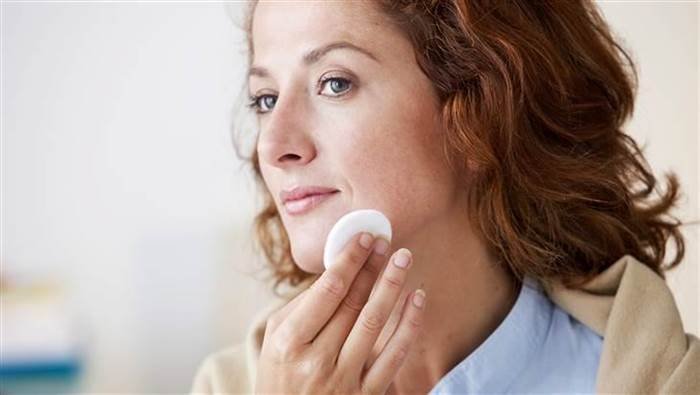It’s no secret that coconut oil can do some pretty amazing things: from replacing a pricier moisturizer to speeding up the healing process on a surface wound.
But some of the tips we’ve heard sound too good to be true — like coconut oil as sunscreen ... really? So TODAY teamed up with a few experts to get the scoop on what the oil really can do, and which tips are, well, snake oil.
Here's the scoop on 10 common claims:
- Coconut oil can tame frizz.
True! This trick definitely works, says hair stylist and New York City salon owner Nunzio Saviano. Rub coconut oil (which goes for around $10 on Amazon) in your palms to warm it up, and then simply massage it into strands. Wash it out a few hours later.
“The molecules in coconut oil are small enough so it penetrates the hair shaft,” he explained. “It locks the moisture in. That’s what keeps the hair nice and healthy looking. When your hair is dehydrated, that’s when you get flyaways and it gets really frizzy.”
- You can use coconut oil as sunscreen.
False. Please don’t do this, warns celebrity dermatologist Doris Day. Instead get one of the top recommended sunscreens from Consumer Reports to protect your skin.
“It may give some sun protection benefits, but it does not replace your need for sunscreen,” Day said. “I wouldn’t risk it.”
- Coconut oil can replace your moisturizer.
Coconut oil is very moisturizing and safe to use, even on the face, for all skin types, Day said.
“Even if you have oily skin, if you put on a thin layer it could help control the oil,” she added.
- You’ll lose weight if you cook with coconut oil.
You might, but nutritionist Dana James reminds us it’s not that easy. Coconut oil has about the same amount of calories and fat — albeit different types of fats — compared to other oils like olive, she said.
“Weight loss can be complex, and simply adding coconut oil into the diet without changing anything else isn’t going to be enough,” James said.
But, she added that the high level of saturated fats in coconut oil can help suppress the appetite.
James also cleared up the difference between solid and liquid coconut oils, explaining that they’re both the same thing, but that pure coconut oil turns to liquid at a certain temperature, around 75 degrees.
Coconut oil can help heal wounds.
Believe it or not, this is true. Day explained that it’s the coconut oil’s antibacterial properties that help cuts and scrapes heal faster.You can use coconut oil as makeup remover.
Yes, coconut oil can even help remove stubborn eye makeup — but most oils can do this, Day points out. Just be careful not to get it in your eyes.You can use coconut oil as natural deodorant.
Sure, if you don’t mind smelling like coconut! “It kills off bacteria and yeast, and that’s what causes odor,” Day said.
But Day points out that while coconut oil might be OK as a deodorant, it definitely doesn’t work as an antiperspirant.
RELATED: 50 ways to use coconut oil around your house
- Coconut oil will get rid of stretch marks.
Nope, sorry.
“I wish, but no,” Day said. “Stretch marks come from a loss of ground substance in the skin, and you can’t replace that.9. Swirling coconut oil in your mouth will whiten your teeth.
Dentist Zack Zaibak of Chicago confirms this is true, adding that swirling coconut oil in your mouth for about fifteen minutes — also known as oil-pulling — can also remove bacteria and help improve conditions like gingivitis.
“It’s a good addition to dentistry,” he said. “There’s not much testing on this, but I haven’t seen any negativity, from a dentist’s perspective.”
- Cooking with coconut oil will make everything taste like coconut.
False. Coconut oil is actually a mild, light option and you probably won’t detect the fruit in most recipes. Celebrity chef Candice Kumai says it works best cooking with high heat, and tastes especially great when cooking Thai and Indian food.
Great ! Thank you!
Great post. Also used for oil pulling.